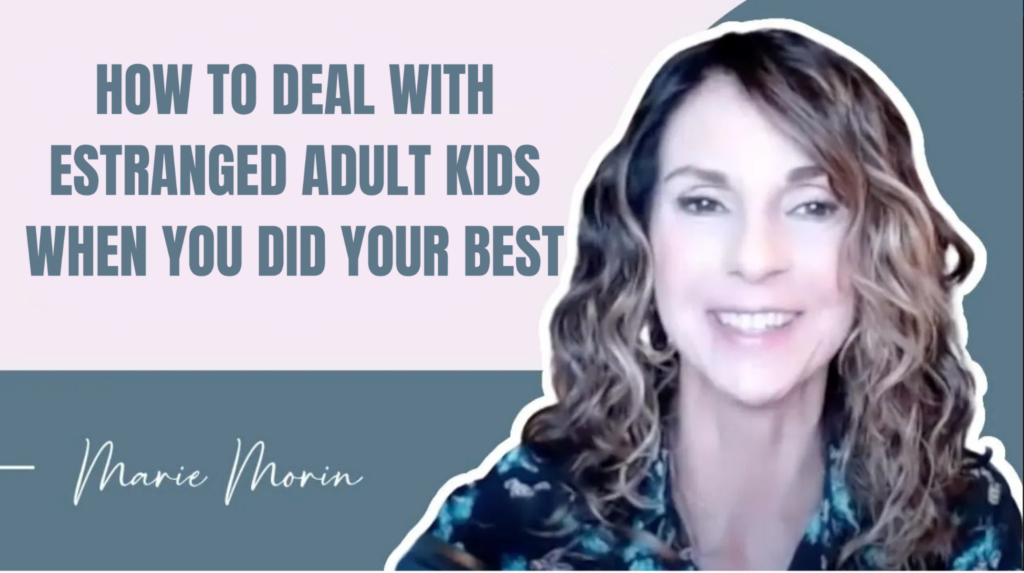Dealing with the estrangement of adult children, especially after putting forth your utmost effort as a parent, is undoubtedly one of life’s most heart-wrenching experiences. Being disconnected despite having dedicated years to their upbringing can leave you questioning yourself and your choices.
If you face this challenging situation, remember that your journey is unique to you and your emotions are valid. While there’s no quick fix for healing such wounds, there are steps you can take to find inner peace and lay the groundwork for potential reconciliation.
Acknowledge Your Efforts
As parents, we often hold ourselves to impossibly high standards, believing we should have been able to prevent estrangement. Remembering parenting is a complex journey, filled with highs and lows, is crucial.
Each child’s path is unique, and external factors significantly shape their choices. Reflect on the positive aspects you’ve nurtured within them and acknowledge the efforts you’ve invested. Understand that you did the best you could with the knowledge and resources available to you at the time.
Validate Your Feelings
Estrangement triggers a whirlwind of emotions that can feel overwhelming. The sadness, anger, guilt, and confusion you’re experiencing are all normal responses to this situation. Allow yourself to grieve the connection you once shared and the hopes you had for the future. You permit yourself to process and healthily work through your feelings by validating them.
Let Go of Blame
The instinct to shoulder the blame for a strained relationship is common, but it’s essential to release this burden. Various factors beyond your control shape your child’s choices and actions. Remember that they are independent beings with their own experiences and decisions. Let go of the notion that you’re solely responsible for their current state of mind.
Understand Their Perspective
It’s essential to consider your adult child’s perspective on the situation. Some estranged adult children may cite perceptions of abuse, toxicity, or betrayal as reasons for their departure. While hearing such claims is challenging, please take a moment to reflect on their feelings. Self-reflection doesn’t necessarily imply agreement; it demonstrates empathy and a willingness to understand their viewpoint.
Reach Out with Openness
If you believe the time is right and feel comfortable, consider reaching out to your estranged child. Approach the conversation with an open heart and a willingness to listen. Express your desire to understand their perspective and find common ground. Be prepared for reactions – they might be receptive, hesitant, or resistant. Regardless of the outcome, taking this step shows your commitment to healing.
Seek Professional Support
Dealing with estrangement can immensely affect your emotional well-being. Seeking professional help, such as counseling or therapy, can provide a safe space to share your thoughts and feelings. A trained therapist can offer guidance, tools, and coping strategies to navigate this challenging period. Their objective perspective can shed light on dynamics you might not be able to see on your own.
Prioritize Self-Care
In times of emotional distress, self-care is not a luxury but a necessity. Engage in activities that bring you joy, purpose, and a sense of fulfillment. Connect with friends, family, or support groups to share your feelings and experiences. Surrounding yourself with a supportive network can remind you that you’re not alone on this journey and can provide much-needed comfort.
Cultivate Forgiveness
Forgiveness can be arduous but holds immense power in the healing process. Forgiving doesn’t mean condoning hurtful actions; it’s about releasing the grip of resentment that weighs you down. Start by forgiving yourself for any perceived shortcomings as a parent. As you progress, consider extending forgiveness to your child, recognizing their humanity and the complexities that influenced their choices.
Stay Open to Different Outcomes
It’s natural to yearn for reconciliation and envision a complete restoration of your relationship. However, the path to healing might only sometimes unfold as you hope. Be open to the possibility that your renewed connection might take a different form, one that might not immediately resemble the past but still holds value and potential for growth.
Focus on Personal Growth
Estrangement, while painful, can also serve as an opportunity for personal growth and reflection. Channel your energy into discovering new hobbies, pursuing unexplored interests, or enhancing your skills. Embrace the chance to reconnect with your identity outside your parent role. This growth can lead to a deeper understanding of yourself and your aspirations.
Every Situation Is Unique
Most importantly, remember that every parent’s perspective and process is different. Your view of the information presented here may not fit your situation. I hope parents and adult children can move toward healing and finding joy again.
Some set boundaries and don’t see their family members for a while. Others may have hope that the relationship will improve. But, whatever your family member decides, you can still do your best to process your grief and find a path to a fulfilling life.
The information and suggestions in this article are meant to support and encourage as they have done with many adult children and parents in my practice. Doing our best doesn’t mean we are perfect; it means we did what we could at the time with the resources we had.
In conclusion, navigating estrangement with adult children is an intricate journey that requires patience, self-compassion, and a willingness to heal. While there’s no guarantee of reconciliation, remember that your growth and well-being matter deeply. By taking these steps, you’re honoring your resilience and paving the way for a future grounded in peace and acceptance.

